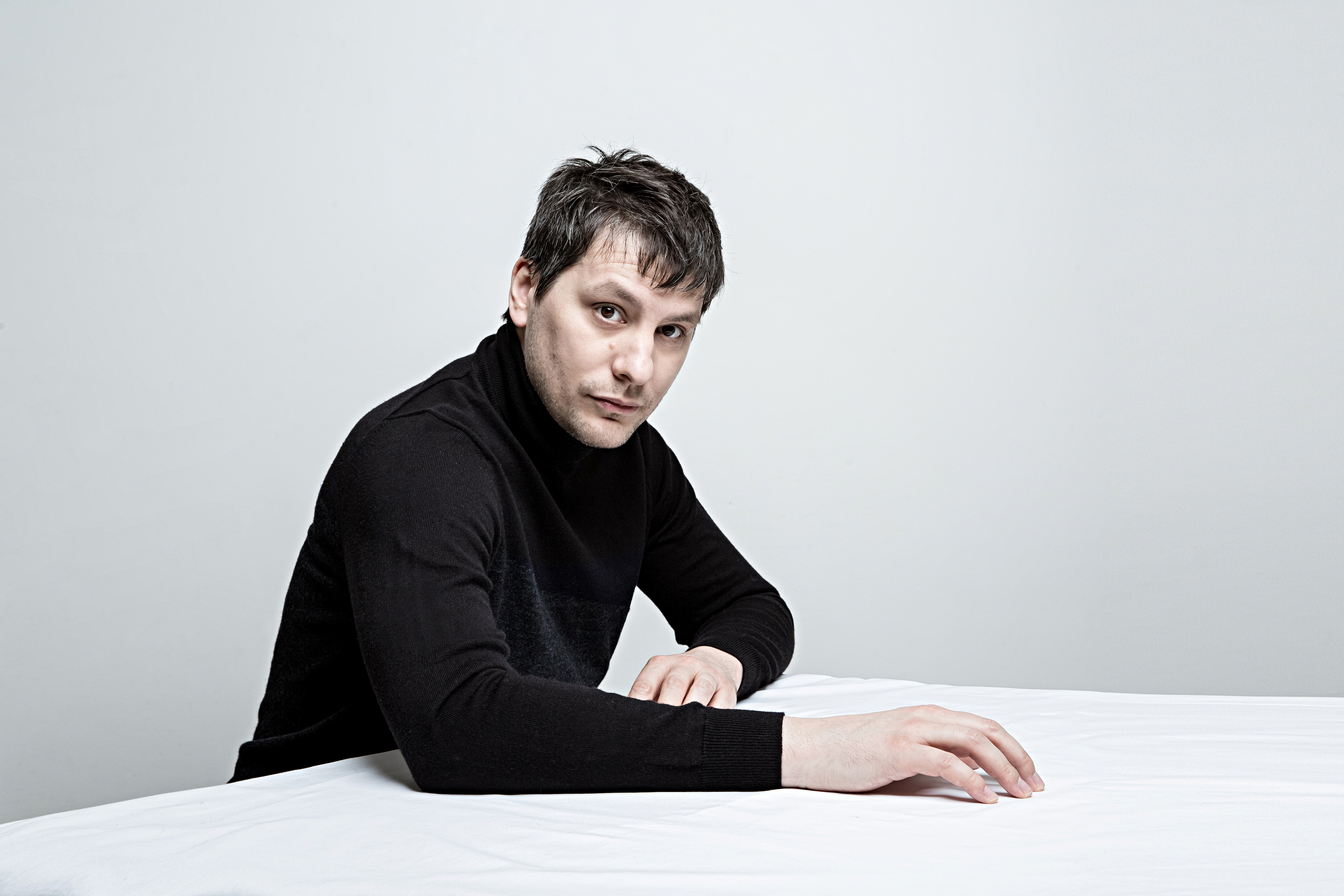« Arthur Ancelle is one of these pianists who look beyond the notes »
Magazine Pianiste
A free spirit among the pianists of his generation, Arthur Ancelle is noteworthy for his musical commitment, for the finesse and intelligence of his playing, for his non-conformism, as well as for the artistry of his piano transcriptions.
Arthur began to play the pianos at the age of three and the study of harmony when he was seven years old; he has obtained degrees in chamber music and in music pedagogy, and he received his Artist Diploma from the Ecole Normale de Musique de Paris. He holds multiple prizes from numerous international competitions from France, Russia, Bulgaria, Italy, Spain, or Australia, which have given him the opportunity to play in some of the greatest concert halls in the world, such as Carnegie Hall, Kennedy Center, Moscow and Saint-Petersburg Philharmonic Halls, Salle Gaveau and Salle Cortot…
Arthur Ancelle’s records stand out thanks to Arthur’s thorough research, which often leads him to question certain traditions of interpretation in the repertoire he approaches:
In Chopin’s works, his favorite composer, Arthur Ancelle “purges decades worth of expressive clichés from these over-recorded scores” (Gramophone), with “an obvious tone carried by considerable pianistic means” (artamag’); considering the “exceptional emotional saturation and the depth of the interpretation”, Piano Forum is “certain that he is in a position to open the way to a new interpretation of Chopin”.
Arthur Ancelle’s encounters with the composer probably have something to do with the “astonishing” (Classica) and “indisputable” (concertonet.com) authority with which Arthur Ancelle interprets Henri Dutilleux’s main works. “A milestone in the history of records” (Le Monde), “one of the best amongst all existing recordings” (Piano Forum).
Intelligent, witty, innovative, adventurous, free, inventive, lively, blazing, the epithets are not lacking to describe Arthur Ancelle’s revolutionary interpretation of Haydn’s sonatas. “Going to the edge of improvisation” (Cadences, France Musique), “Ancelle wants to captivate attention, so much so that we wonder what will happen, and he succeeds” (Classica).
Well known for his piano duo with Ludmila Berlinskaya, who was originally his teacher, Arthur Ancelle benefits from a pianistic education coming from several great Russian schools. While following an atypical career path, he developed his artistry alongside several professors whose varied teachings provided precepts passed on by the successors of Heinrich Neuhaus, Alexander Goldenweiser, Lev Oborin, Yakov Zak or Konstantin Igumnov. His education and French culture have also nourished his technique and pianistic approach.
As a piano duo with Ludmila Berlinskaya, he has been invited by the Musical Summitsin Gstaad, the Moscow December Nights Festival, the Tokyo Spring Festival, the Rota das Artesin Lisboa, the Lisztomanias, the Solistes à Bagatelle, or the Pianofolies du Touquet in France. In Russia, they perform every year in the finest concert halls of Moscow and Saint Petersburg and are invited by prestigious orchestras such as Saint-Petersburg Philharmonic Orchestra, Freiburg Philharmonic Orchestra, Ulsan Philharmonic Orchestra…
Their recordings, frequently rewarded by music critics (Editor’s Choice Gramophone, Pianist Maestro, Must Concertonet, Clic Classiquenews, 5 Diapasons etc.), offer several of Arthur Ancelle’s own transcriptions, some of which have been published by renowned music publishing companies, Jurgenson and Chant du Monde.
“Master transcriber” (classiquenews), Arthur Ancelle mainly puts spirit before the letter, music and pianism alon guide his writing technique, which “gives and effect of coherence and accomplishment” (resmusica), where we “quickly forget the original orchestration of the score” (concertonet) so that these “super transcriptions” (musicweb-international) are thus recognized as “further major addition to the two-piano literature” (Gramophone).
A tireless explorer of the repertoire, impassioned by conceiving music programs, believing that it is necessary to go beyond the rigidity of the usual concert format, he aims to break down barriers in order to free the artistic message, which alone can define a concert’s form and weave a strong connection with the public.
In this sense, the artistic direction of the “La Clé des Portes” and “Rungis Piano-Piano” festivals, intimately thought out with Ludmila Berlinskaya, gives him an ideal springboard for his wish for sharing, freethinking and experimentation.
